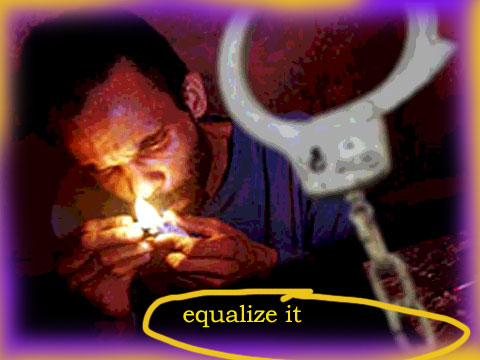On Thursday The Sentencing Project released a report that looks at the sentencing disparities in 13 states between offenses involving crack or powder cocaine.
As you may remember, the sentencing gap has been nearly closed on a federal level, but 13 states still punish people far more severely for possession of crack than if the crime involves powder.
Some states have closed the sentencing gap. But 13 have not, California included.
Missouri has the worst gap of the 13 with a 74-1 disparity.
California is, fortunately no where near that bad, yet it still needs to get with the program.
Here’s what the report says about our state:
CALIFORNIA
In California the crack-powder disparity varies. Defendants convicted of possession with intent to sell 57 grams of powder cocaine are subject to sentences of three to
five years in prison depending on aggravating or mitigating circumstances, whereas
crack cocaine offenders face the same penalties for only 14.25 grams of the drug.Policymakers in the 1980s sought to control drug use by adopting sentencing
enhancements and a tough on crime approach. While several bills introduced in the
California Assembly would have provided assistance to counties to operate drug
treatment facilities, the prevailing sentiment among elected officials was that drug
users needed to be punished rather than helped.“The number of people who have requested services has skyrocketed on us,” said William Edelman, deputy assistant director of the Orange County Health Care Agency. “At the same time, for whatever reasons, we have been unsuccessful in convincing people that there is a need for treatment services.”
Moreover, state policymakers focused on drug quantity as the primary factor in determining drug penalties, often excluding factors such as a defendant’s role in the offense, age or mental condition. The California state legislature approved the “penalty-by-the-pound law” in the mid-1980s, which sought to focus law enforcement priorities on major dealers of cocaine and other drugs.
However, lawmakers also focused sentencing policies on lengthening sentences for low-level drug offenses.
California lawmakers have attempted reform in recent years. During 2008,
lawmakers considered a measure that would eliminate distinctions for crack and powder cocaine from the criminal code resulting in the equalization of penalties as a strategy to make sentences fairer. The bill was voted out of the Public Safety Committee on a 5-2 vote and the Appropriations Committee on a 9-6 vote, but failed to be scheduled for a vote on the Assembly floor.

